You can't really function in the world without a bank account. However, if you're struggling with poor credit history, or simply want a simple account with no fees (and no overdraft temptations), then getting a basic bank account is your best bet.
In the article below, you will find our reviews of the best basic bank accounts in 2024, as well as a guide on what to look out for.
Basic Bank Accounts – Our Top Picks
| Name | Score | Visit | Overdraft | Account Types | Interest on Savings | Fees | Disclaimer | |
|---|---|---|---|---|---|---|---|---|
 | 8.0 | Visituk.virginmoney.com | Yes | Current, Private current, Joint, Savings | 2.02% AER with the M Plus current account. See site for other saving offers | No fees | ||
 | 7.5 | Visitsantander.co.uk | Yes | Edge current, 123 current, Select current, 123 Student, 123 Mini current | 4.25% AER | Up to £4 per month, for overdraft fees see terms | ||
 | 8.5 | Visitrevolut.com | No | Standard, Plus, Premium, Metal | 4.75% AER | Standard (Free), Plus (£2.99), Premium (£6.99), Metal (£12.99) |
Top Basic Bank Accounts Compared & Reviewed
Now let's dive into the article and talk about the best basic bank accounts. All have their advantages and disadvantages. Read the guide carefully, consider what they offer, and make your own choice.
Here’s a recap of the best basic bank accounts available;
Best overall - Virgin Money M Account
Best for rewards - Santander Basic Current Account
Best mobile app - Revolut Standard Account
Best for recovering from a bankruptcy - Co-Operative Bank Cashminder Account
Best for building financial skills - Natwest Foundation Account
Best for savers - Nationwide Building Society FlexBasic Account

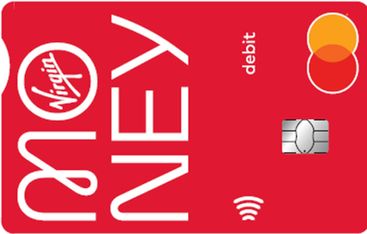
If you've had trouble with your finances in the past, or if you have a poor credit score, the Virgin Money M account could be a great option for you. One of the best things about it is that you don't need a passport or driver's license to apply, which is handy if you don't have those documents. You just need to be at least 16 years old.
What makes this account really stand out is the instant savings account that comes with it. You can earn interest on balances up to £25,000 at a rate of 3.55%, which is pretty impressive compared to other basic bank accounts. And if you have more than £25,000, you can still earn interest at a rate of 2.52%.
The Virgin Money App is also worth mentioning. It has some really useful features like saving pots and goal-setting options, which can help you manage your money more effectively. Plus, there's a support hub that provides financial advice and can help you improve your financial literacy.
Another perk of the account is the cashback you can get from certain brands. So if you're looking for a basic bank account that offers more than just the basics, the Virgin Money M account is definitely worth considering.
- Instant savings account with competitive interest rates
- Cashback options for select brands
- No fees for spending abroad
- Tools for budgeting and saving
- No online application, you must visit a branch location or give the bank a call
- No signup bonuses or incentives

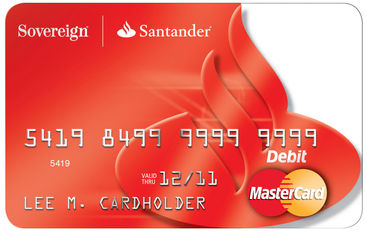
Santander's Basic Current Account is highly convenient, with a smooth experience on both the online banking service and mobile app. You can't apply for a credit card or overdraft for the account, though there are still plenty of other great features.
One unique feature is Santander Boosts. All you have to do is opt-in through online banking or the app and Santander will recommend cashback, discounts and special offers at leading brands tailored to your interests.
The mobile app also helps you develop your financial skills with the My Money Manager tool. Here, you'll be able to set up smart budgets, track your monthly cash flow, and get alerts if your bills or spending increases.
Finally, there are no fees for withdrawing from Santander cash machines, which could save you money when travelling if you're somewhere with Santander branches.
- Spending alerts to keep you informed
- Smooth mobile app experience
- No fees for withdrawing from Santander cash machines abroad
- The online banking system sometimes experiences downtime
- £25 fee for making non-SEPA international payments

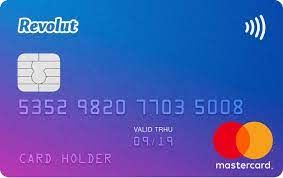
Revolut’s current account functions similarly to a basic account you can get from other banks – there are no maintenance fees, overdraft facilities, and eligibility criteria are fairly lax.
The account opening process is completely digitised and takes a matter of minutes. Using the app, you can pay via QR codes, send encrypted chat messages as payment reminders, set saving goals, and budget your spending.
There’s also a helpful automatic saving function – the app automatically rounds up your purchases to the closest amount and sends every extra penny to a savings pot (called Vaults). You also get cashback offers from the likes of ASOS or Nike; the brand list is extensive.
It's also a great travelling companion: Revolut has some of the most flexible currency options — it offers a multicurrency account, including US dollar and euro accounts. By converting at the right time, you can save tons on your currency purchases.
ATM withdrawals are very limited, though, with associated fees kicking in once you go over the £200 monthly limit.
- Quick and easy account opening process
- Impressive app functionality, including virtual cards and QR code payments
- Encrypted chat for secure communication
- Plenty of cashback offers and rewards
- The savings interest isn't very high in the free plan
- ATM withdrawals are limited to £200 per month

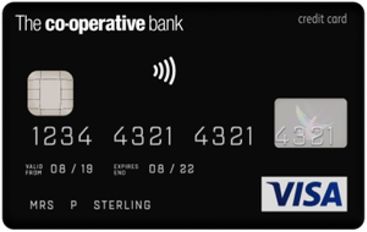
The Cashminder account is a great option for individuals with low credit scores or no credit history, especially if you're struggling with debt or have recently gone bankrupt. Unlike other accounts, you can still apply for a Cashminder account even if you have gone bankrupt recently, which sets it apart from the rest.
Similar to Virgin Money, any UK resident aged 16 or over can apply for a Cashminder account. If your initial application is rejected, don't fret, as you can appeal or visit a branch location to discuss your options.
You can use your card via Apple Pay, Google Pay, and Samsung Pay. However, there is a 2.75% currency conversion fee when you use your card abroad.
If you're looking for a joint bank account, the Cashminder account can also be set up jointly. This can be a beneficial feature for couples or families who want to manage their finances together.
- Joint account option
- Supports Samsung Pay, Apple Pay, and Google Pay
- Easy online application process
- No credit check to open an account
- 2.75% fee on foreign currency transactions
- No overdraft or cheque book available

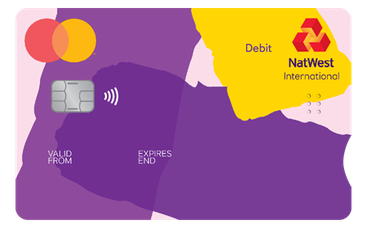
Similar to the Co-op's Cashminder account, NatWest's Foundation account is designed for those who may not be eligible for many accounts due to poor credit history or previous bankruptcy. You can't apply directly for a Foundation account, but NatWest may offer you one if you apply for one of their other accounts and get denied.
NatWest aims to help customers manage their money better. You can keep on top of everything in the mobile app and set up text alerts. What's more, there's a tool to help you set up and achieve savings goals. You can also benefit from a quick and free digital financial health check and tips on savings money.
As for the mobile app, it's definitely user-friendly, but it's not quite as feature-rich as some of the other apps out there. However, the emergency cash feature is definitely a nice touch – if your card is lost or stolen, NatWest can send you a code that allows you to withdraw cash from an ATM until your new card arrives.
- Emergency cash feature
- Available to those with a low credit score
- No cheque book, credit card, or overdraft
- Mobile app is not as versatile as competitors

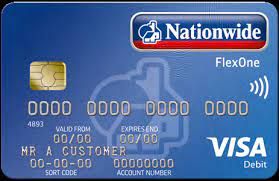
The Nationwide FlexBasic current account offers some unique features, such as a savings account and text alerts, which makes it worth considering if you're in the market for a basic account with added benefits. However, it's important to note that the eligibility requirements may be more stringent than other basic accounts.
To open an account, you'll need a valid UK passport or a full UK driving licence, as well as your address history for the last three years and your employer's address. It may be possible to open account without all of these things, but you'll need to apply in branch. It's also possible to open the Flex Basic as a joint account with anyone you like, or add another account holder later on.
Assuming you meet the requirements, you can benefit from an optional savings account that's not always available with other basic accounts. The Flex Regular Saver pays interest of 8% on monthly deposits of up to £200 for a year. There are plenty of other savings account options too—a variety of fixed-rate ISAs and bonds, triple access ISAs and Savers, and instant access accounts. What's more, the interest rates are pretty competitive.
- Offers a choice of savings account
- Can be a joint account with anyone
- No cheque book or overdraft
How We Rate The Best Basic Bank Accounts
While there are certain similarities, which we discuss in detail below, there are also several factors that differentiate one basic bank account from another. The factors we used in our assessment include;
Application and Eligibility – We took into account how difficult the application process is, and the banks’ eligibility requirements. Some people looking for basic bank accounts may be ineligible for other kinds of accounts. We've made sure to include accounts that are accessible to those who have a low credit score or history of bankruptcy.
Mobile App Features – All these accounts have a mobile app, but they vary in the number of features they offer. We considered the versatility of apps, and their ease of use. We particularly kept an eye out for apps with special features such as budgeting tools or rewards.
Availability of Savings Account – Not all basic bank accounts offer a savings account, so we made sure to include those that do. We compared interest rates to find those with the most attractive offering.
Extra Features – This is where the most variation lies. Some banks offer joint accounts, cashback options or sign-up bonuses, or an assistance hub to help educate you on personal finance, just to name a few. Not all basic accounts come with such additional features, so we looked for those that do.
How Do Basic Bank Accounts Work?
By nature, basic bank accounts are simple, affordable, and accessible. While you can do fundamental things like holding money or paying your bills, there are certain limitations in place.
Most importantly, they are far less likely to offer an overdraft facility or access to a chequebook, and only a few have perks such as earning interest on balance or being able to add a second person to the account.
Yet, most limitations are justified. Banks typically offer basic bank accounts to individuals with very poor credit ratings, those who struggle financially, or younger people who are signing up for their first bank account.
The lack of overdraft facilities is there to protect both the bank and help customers stay out of debt. On the bright side, these accounts do not charge any maintenance fees and don't have any minimum required funds.
What can you do with a basic bank account?
As we've mentioned, basic bank accounts are simple and limited. However, it still is a bank account, and you have basic money management options at your disposal.
With a basic bank account, you can:
✔️ Deposit and Withdraw Money – You can use your basic bank account to deposit and withdraw cash.
✔️ Transfer Funds – You can pay your bills, transfer money to other accounts, and make online purchases.
✔️ Receive Payments – People can send you money, and you can receive your salary, pension, etc.
What are the limitations of basic bank accounts?
❌ No Overdrafts – Most, if not all, basic bank accounts don't offer overdraft facilities. This means that you can't borrow money from your bank and pay it later.
❌ Limited Features – You're unlikely to have access to a chequebook, and only a few basic bank accounts offer cashback or sign-up bonuses.
❌ No Interest – Most basic bank accounts don't offer interest on your funds (with some exceptions).
What features can you expect?
What defines basic bank accounts, in a way, is their lack of features. Basic bank accounts are intentionally very limited to protect the bank and customers from spending money they don’t have.
That being said, there might be some specific features. These include:
No Credit Check – Unlike standard bank accounts, basic bank accounts do not require a credit check as a condition of opening an account.
Direct Debits and Standing Orders – Basic bank accounts usually allow you to set up and receive direct debits and standing orders, which can be used to pay bills and make regular payments.
Online Banking – You can use the bank’s app and/or website to manage your accounts, check your balance, and make transfers and payments online. Online banks like Revolut, offer robust tools for budgeting and saving.
Extended Limitations – Some banks, like Santander, can allow you to lower your daily withdrawal limits and set up other limitations to help you stay within your budgeting goals.
Do interest rates matter when using a basic bank account?
The vast majority of basic bank accounts don’t allow earning interest on cash, nor offer borrowing capabilities – meaning that there are no incidents where interest rates are relevant.
Notable exceptions are Virgin Money and Nationwide, which both offer linked savings accounts. Virgin Money's savings account is instant access and offers 3.55% on balances up to £25,000. Nationwide's Flex Regular Saver, meanwhile, pays 8% interest, but only if you save up to £200 a month and make fewer than 4 withdrawals a year.
If you want to build your savings with a basic bank account, then it's important to check not only the interest rates but also the terms regarding access and limits, as which one pays more will depend on how much you want to save and how often you want to withdraw.
The Annual Equivalent Rate (AER) is the rate of interest you can earn on your savings. It takes into account how often interest payments are made and the effect of compounding. It provides a standard way of comparing different savings accounts and helps you work out which account is likely to offer you the best return on your investment.
Basic bank accounts are mostly free, but some charges may apply
Basic bank accounts are not allowed to charge customers for the everyday operations of the account. This means you should not be charged for unpaid direct debits or standing orders, nor for going into overdraft, which is not typically a feature of these accounts anyway.
However, it is important to monitor your account balance closely and manage your funds responsibly, as you may still incur charges if you are unable to pay a bill or payment to a company.
In some cases, banks may cancel direct debits or close accounts if there are frequent payment bounces, although this is not a common occurrence. The bank should provide advance notice before taking any such action.
It's worth noting that basic accounts may still have charges for certain transactions, such as using your debit card abroad or making special payments like same-day CHAPS payments. You should be informed of any charges beforehand.
Check your eligibility for a basic bank account
Different banks have different eligibility criteria, but common requirements include:
Being at least 18 years old (some banks lower this to 16, including Santander and Virgin Money);
Being a UK resident;
No previous fraudulent activity;
Not having an existing bank account with the bank.
Additionally, common issues that usually prevent you from opening current accounts are not considered in basic account applications. These include:
Poor or non-existent credit;
Bankruptcy (can vary by the institution);
Only having alternative forms of ID.
Still, the best way to be sure you are eligible is by checking with your preferred bank. Many have online forms you can test out, or you can always call them.
Most basic bank accounts do not have sign-up offers and promotions. However, NatWest offered a £200 switching bonus in early 2023, so it could be worth keeping an eye out for the best bank switch deals.
How To Choose The Best Basic Bank Account In 2024
So, how are you supposed to choose the best basic bank account in 2024? Here are some points to consider:
Eligibility Requirements – While all basic bank accounts are supposed to be used by people with poor credit or financial issues, some do offer extra options. For example, certain banks let you open this type of bank account once you turn 16. Other banks let you set up a basic bank account even if you are going through bankruptcy. Your personal circumstances will be decisive here.
Setup Convenience – Some banks let you open this type of account through an online form, where everything will be handled for you once you fill in your details. Other banks, however, only allow you to do this by phone, or require that you visit their branch in person. Finally, specific banks are completely fine with alternative forms of ID, while others require regular ID such as a driver’s licence or a passport. Consider the options that work best for you and the documents you are able to provide for the time being.
Mobile App Features – Today, almost every bank offers a mobile app, and since the immense popularity of digital banks, they tend to be feature-rich. Still, they vary in terms of the services they offer. While many integrate with payment gateways like Apple Pay or Google Pay, some also offer effective budgeting tools or spending insights. Consider how likely you are to use such services, and whether they can help you budget more effectively.
Sign-up Bonuses and Cashback – Very few basic bank accounts come with cashback and sign-up bonuses. While this is nice to have, definitely look at it as a cherry on top – not a decisive factor.
.jpg)
.jpg)




